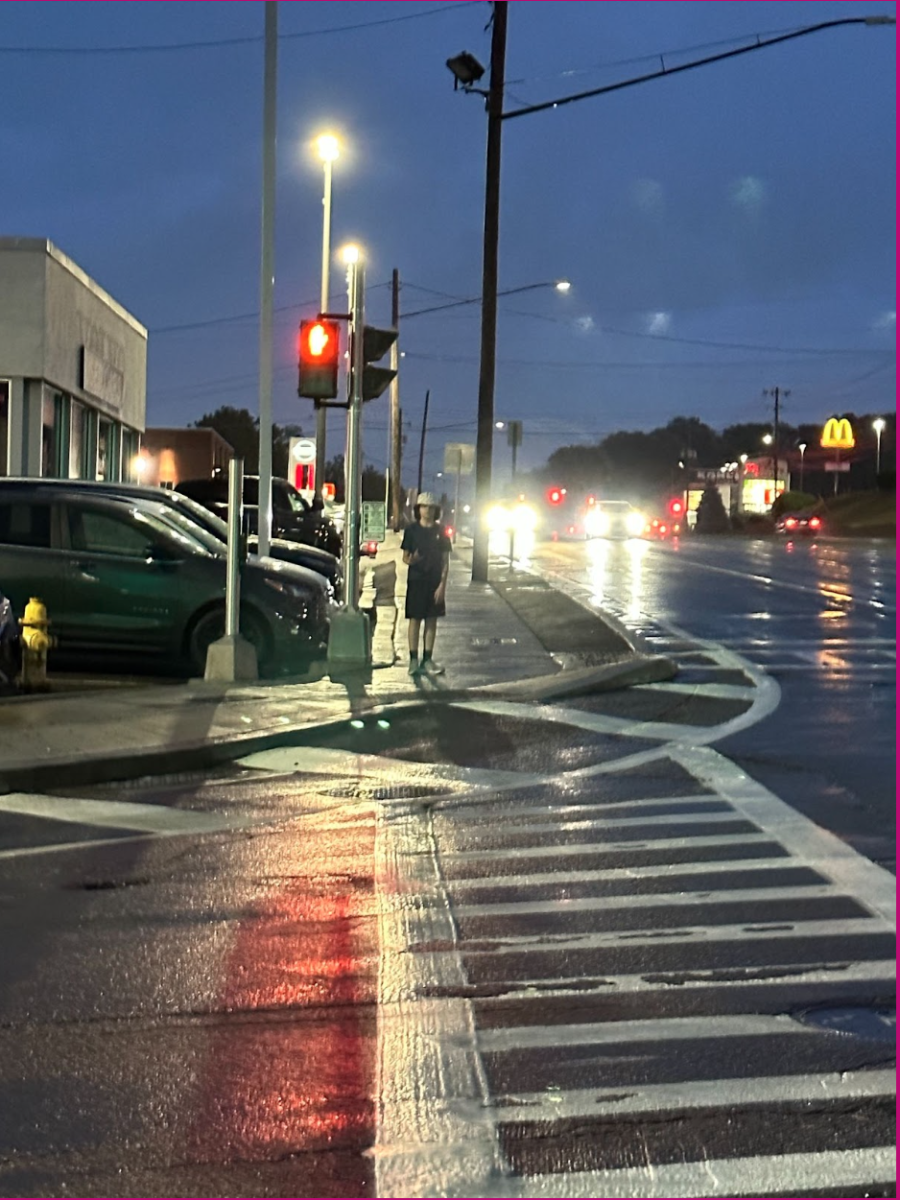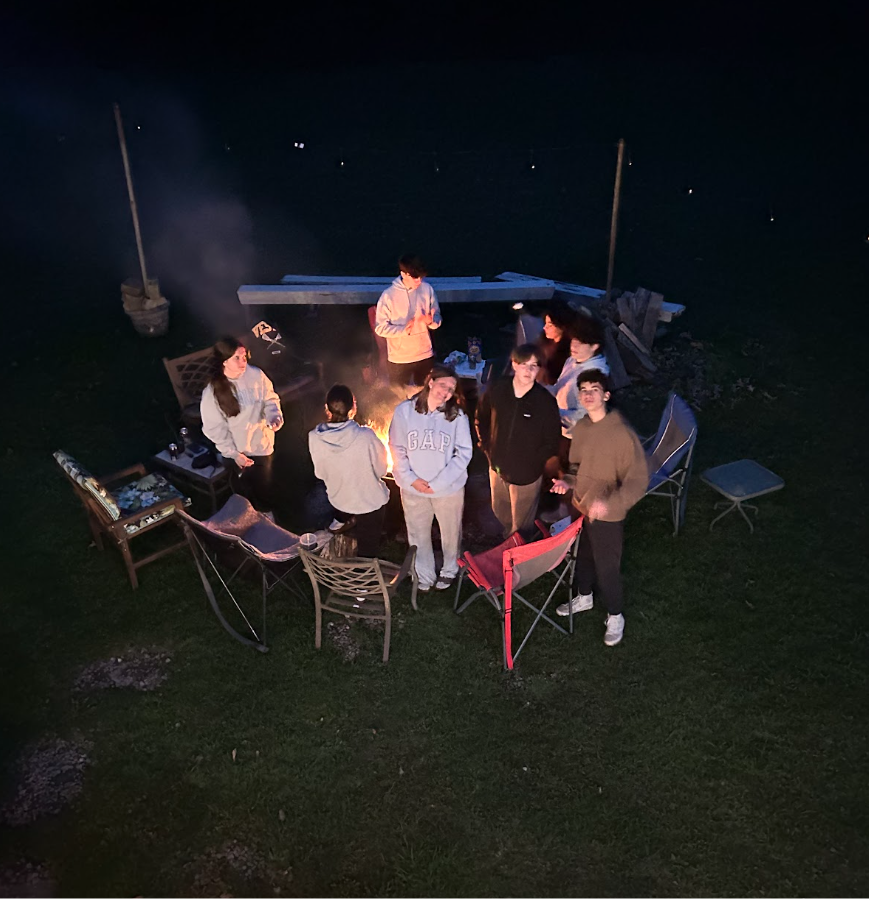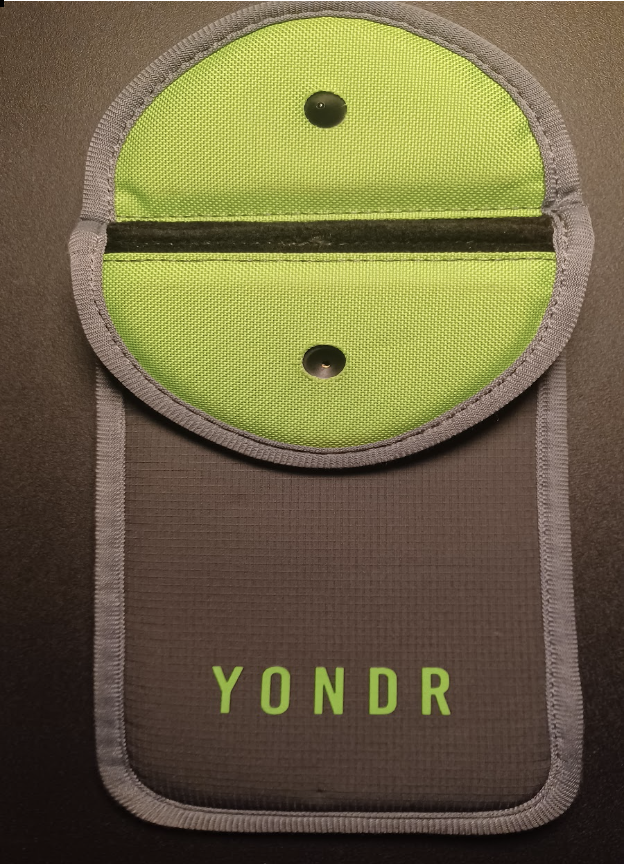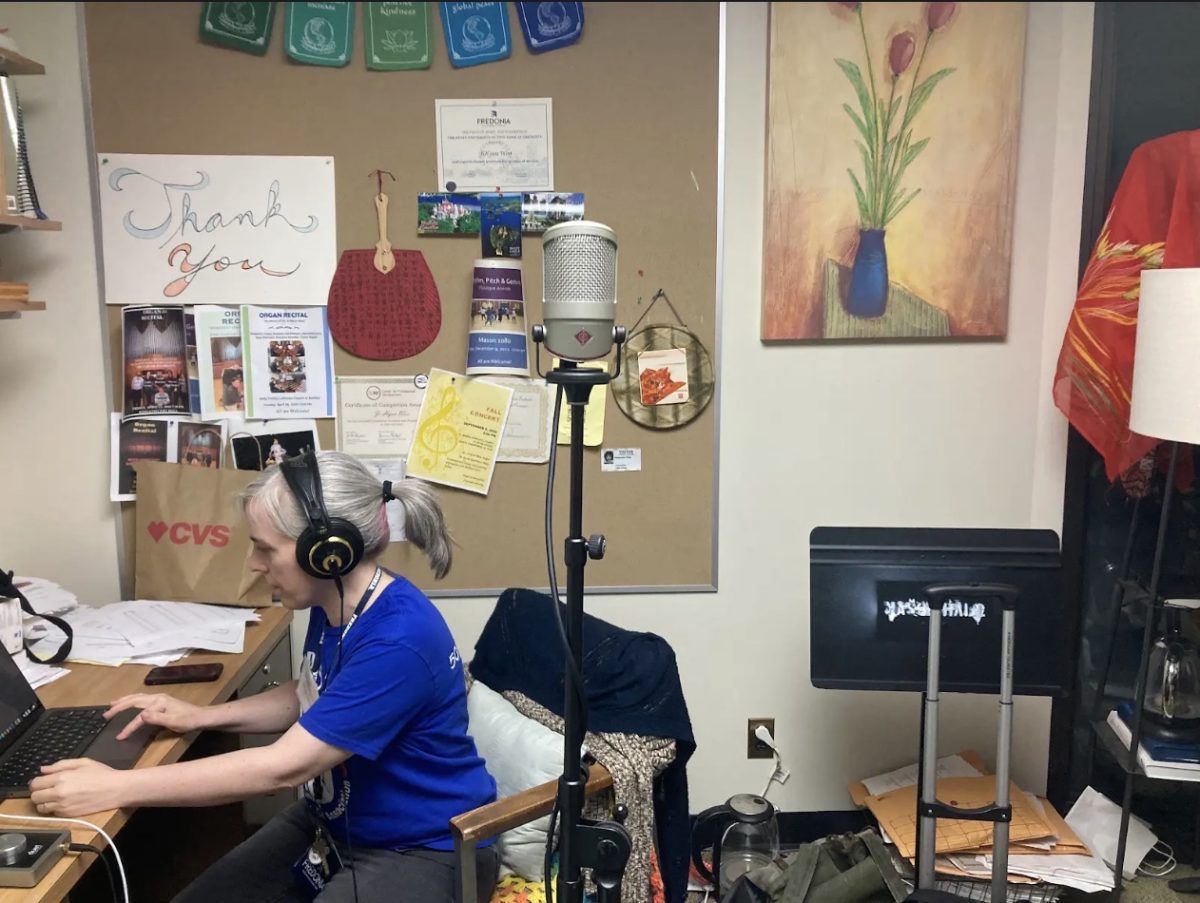Horsegirl’s new release, Phonetics On and On, exemplifies the bravery required for simplicity. The band has stripped away the sound. Horsegirl is confident. They have slipped into a groove.
Composed of two lead singers/guitarists and a drummer, the youthful and vibrant girls, 20, 21, and 20 years old, are stable and trustworthy. In terms of stage presence, the band is edgy and hardcore. They don’t giggle and apologize as they calmly vibe with the audience, gazing over our heads, stopping to lock in with many-a-pair-of-eyes. The audience Horse Girl attracts – at least in Brooklyn – is the epitome of relaxed. Watching Horsegirl live is similar to listening to them: a still, unselfconscious transfer of energy.
Horsegirl’s two frontwomen, Gigi Reece and Nora Cheng, harmonize complementary sequences of vocals and guitar to create a rich musical landscape as they have for years. The two seem equally share the role of vocalist, however Cheng’s guitarwork often takes precedence in the upper register while Reece more often digs into infectious grooves on the bass strings. Throughout Phonetics On and On, Cheng’s solos take on a third voice: one of great personality. On “Julie”, the soloing turns into non-melodic spasms, a bit like squeals or paint-splatters. [Sometimes, another instrument is added for secondary texture: “2468” (which starts in ¾) features a pulsing melodic line of violin playing a percussive role in accompaniment.]
Unlike much of the popular music of today, words are not a main priority to Horsegirl. The band’s vocals have always been supplementary and blended, dating back to their first singles such as the remarkable “Ballroom Dance Scene”. While their vocals took an instrumental role and their lyrics a textural one during this era, the element still summed to an immense block of text.
Phonetics On and On takes the principle to new heights. Now, Horsegirl embraces absolute minimalism in their vocals, contrasting the pair’s elaborate guitar texturization. They fight wordiness with the original use of phonetics that focuses on the connotations that can be conjured through the sounds they make instead of their meanings. Sentence’s subjects are often omitted. The chorus of the album’s fourth track, “Well I Know You’re Shy”, starts: “Sing for you/I wanna sing/Like you do/out your window/ladadadada. ” These three-word lines compound to convey a romantic sentiment that is actually deep. It is followed by: “Radio tune/when the radio’s blue/listen to your window/ladadadada” which complexifies the relationship in the song, while conjuring a simple image containing a radio, a window, and the color blue. The lyrics resemble natural fragments of thought stripped of context, as basic and primitive as they spontaneously occur when devoid of distraction and hyperstimulation.
The phonetics embedded in the lyrics sometimes create the impression that the people or characters in the songs, sometimes named (such as Emma or Julie), are singing to themselves as they busy about. Or, they fill in for the narrator’s more inarticulable feelings. “Julie” goes: ““Julieeee…. /Da/da.da.da./Julieeee…/I wish I could tell you what you want” as instrumental layers are suspensefully added. The “what you want” seems to be implied by the “Da/da.da.da.”
The non-phonetic parts of the lyrics sound more like talking than in other music as Gigi Reece goes on, almost chanting, “Do you have the same dream three times a week?/Favors too big for you to keep/We have so many mistakes to make…” Her vocalization takes on a bit of British pronunciation, though in a relaxed manner, resembling the singers of some British invasion bands in earlier rock such as Ray Davies of The Kinks. Cheng’s vocals and melodies, meanwhile, have more of a sing-song quality that is endearingly adolescent (though that might piss her off) and the softness of Rory Gilmore.
The track “Switch Over” is mentionable for its jumping danceability that increases throughout, and its lyrics serve as no distraction. “Switch off!” they chide as drummer Penelope Lowenstein steals the show. She makes Horsegirl militarily tight. “Say, say, say, say./What you want me to say.” Reece commands, encouraging listeners and lovers to close their minds and find a pure and emotionally driven state before they end on an unresolved four chord (a habit).
Though “Informational Content” allows the most verbosity and guitar complexity – the title serving as a warning – there is still scarcely a lyric without a phonetic sound. The lyrics are more plentiful but they are still unconnected and the guitarwork finds the most freedom. The album closes with “Frontrunner”: deeply sweet.




















